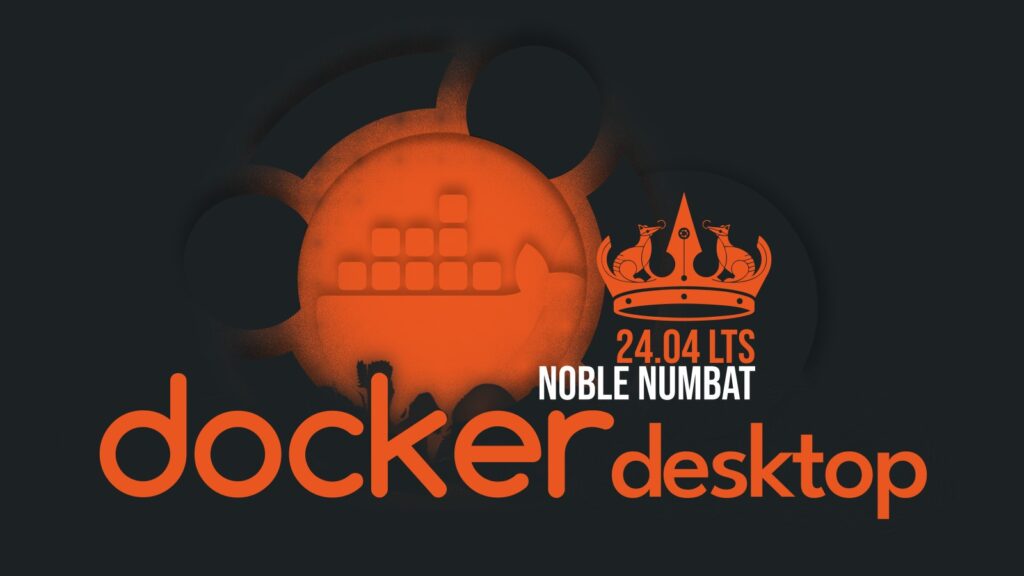If you’re looking to simplify the process of creating, sharing, and managing containerized applications through a user-friendly interface, Docker Desktop is the solution for you. Likewise, Ubuntu, renowned for its robustness and dependability, remains a top choice among software developers.
Combining these two powerhouses enables you to efficiently build, test, and deploy containerized applications within a seamless and isolated environment. This collaboration streamlines teamwork and boosts productivity.
Our comprehensive guide will lead you through each step of the Docker Desktop installation process on Ubuntu 24.04 LTS, allowing you to kickstart your containerized projects with ease and efficiency without getting bogged down by complex setups.
Minimum System Specifications
- 64-bit kernel and CPU compatibility with virtualization capabilities.
- Minimum of 4 GB of RAM.
- KVM virtualization support.
- QEMU version 5.2 or higher.
- A desktop environment that supports system tray functionality.
It’s vital to note that Docker Desktop operates a Virtual Machine that establishes its Docker context. Consequently, containers existing on your Linux host before Docker Desktop installation won’t be accessible within the application, necessitating redeployment through Docker Desktop for management.
Step 1: Integrating the Official Docker Repository
Prior to directly installing Docker Desktop on Ubuntu 24.04, you must incorporate a single DEB package. Attempting to install it promptly without pre-adding the Docker repository on your system will result in an error due to absent dependencies.
The error message typically reads, “docker-desktop: Depends: docker-ce-cli but it is not installable.”
Consequently, Docker Desktop mandates the installation of the “docker-ce-cli” package on your Ubuntu 24.04 or accessibility in its repositories. Consequently, we must first append the official Docker repositories to your system housing the requisite package. This approach ensures that upon Docker Desktop installation, all mandatory dependencies are acquired from the repository, guaranteeing a smooth installation process.
Execute the subsequent commands in the specified sequence to integrate the Docker repository into your Noble Numbat system.
sudo apt install apt-transport-https ca-certificates curl gnupg
curl -fsSL https://download.docker.com/linux/debian/gpg | sudo gpg --dearmor -o /usr/share/keyrings/docker.gpg
echo "deb [arch=$(dpkg --print-architecture) signed-by=/usr/share/keyrings/docker.gpg] https://download.docker.com/linux/ubuntu noble stable" | sudo tee /etc/apt/sources.list.d/docker.list > /dev/nullCode language: Bash (bash)Subsequently, refresh the repository index. The command output indicates the readiness of the Docker repo for operation. As a result, essential package dependencies will be sourced from the repository during the Docker Desktop installation process, ensuring smooth execution.
sudo apt updateCode language: Bash (bash)Step 2: Fetching Docker Desktop
Direct your browser to the specified link and select the “DEB package” option to download Ubuntu’s Docker Desktop installation package.
Step 3: Docker Desktop Installation on Ubuntu 24.04 LTS
With the preparation complete, proceed to install the downloaded DEB file. Execute the command indicated below, ensuring modification of the file path if stored in an alternative directory on your Ubuntu 24.04 system.
sudo apt install ./Downloads/docker-desktop-amd64.debCode language: Bash (bash)Step 4: Activating Docker Desktop
Once installation concludes, refrain from launching the application immediately, as you may encounter an unexpected error message.
This error stems from Ubuntu 24.04 LTS’s alterations restricting unprivileged namespaces. However, a prompt solution exists.
To address this temporarily, run the specified command:
sudo sysctl -w kernel.apparmor_restrict_unprivileged_userns=0Code language: Bash (bash)To permanently resolve the issue, execute the following command and restart your Ubuntu system:
echo 'kernel.apparmor_restrict_unprivileged_userns = 0' | sudo tee /etc/sysctl.d/20-apparmor-donotrestrict.confCode language: Bash (bash)Utilize the application launcher, search for “docker,” and initiate Docker Desktop by clicking on its icon.
Remember to accept the “Docker Subscription Service Agreement” upon launch.
For Docker Desktop subscribers, proceed to log in. Alternatively, select “Continue without signing in.”
If you’re uncertain about Docker Desktop’s functionality, participate in a brief survey or choose to “Skip survey.”
Congratulations! Docker Desktop is now successfully operational on your Ubuntu 24.04 LTS system, providing you with enhanced functionality and convenience for managing containerized projects. You can conveniently oversee the application through the system tray icon.
Take advantage of Docker Desktop’s intuitive graphical interface to efficiently containerize your concepts effectively and swiftly.
Ensure Docker Desktop launches automatically during login by adjusting settings within Docker Desktop to enhance your operational efficiency.
In Conclusion
By following our detailed instructions, setting up Docker Desktop on Ubuntu 24.04 LTS becomes a straightforward task. Whether creating a development environment, testing containers, or deploying applications, you now possess a robust platform suited for these endeavors.
For more detailed insights into Docker’s functionalities, refer to its documentation or peruse the official Docker Desktop manuals. Additionally, if the command-line approach appeals to you, our guide on installing Docker on Ubuntu 24.04 LTS offers an excellent starting point.
We appreciate your usage of our guide! Share your feedback and comments in the section below.











